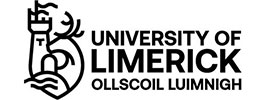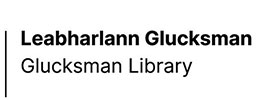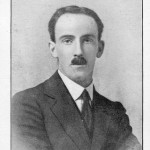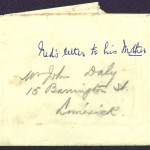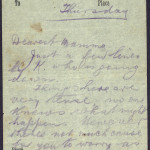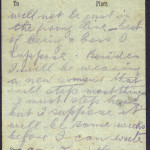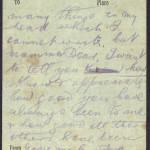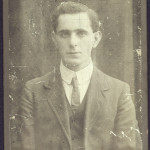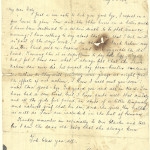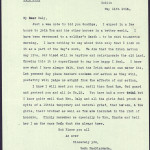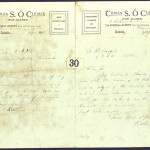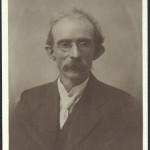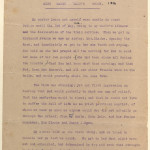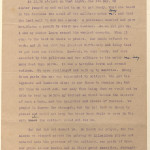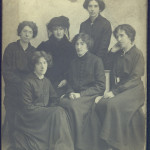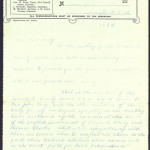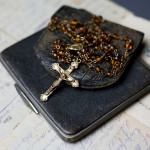John Daly, devastated by the loss of his nephew and closest friends died on 30 June 1916, aged 70. His influence and legacy was marked by the volume of good wishes the Daly family received from organisations and individuals alike. John Daly the Fenian, like those who fought and died in the Rising, engendered the principles of Fenianism that placed the pursuit of the Irish Republic above all other goals. His and his Fenian comrades’ deaths in 1916 did not signal the end of another phase of Irish militant nationalism, they in fact marked the beginning of the most organised and effective military campaign against British rule in Ireland since the emergence of Irish republicanism.
“I feel I know now what I always felt that the Irish nation can never die.”
Seán MacDiarmada, Richmond Prison, to John Daly, 11 May 1916, the night before his execution

